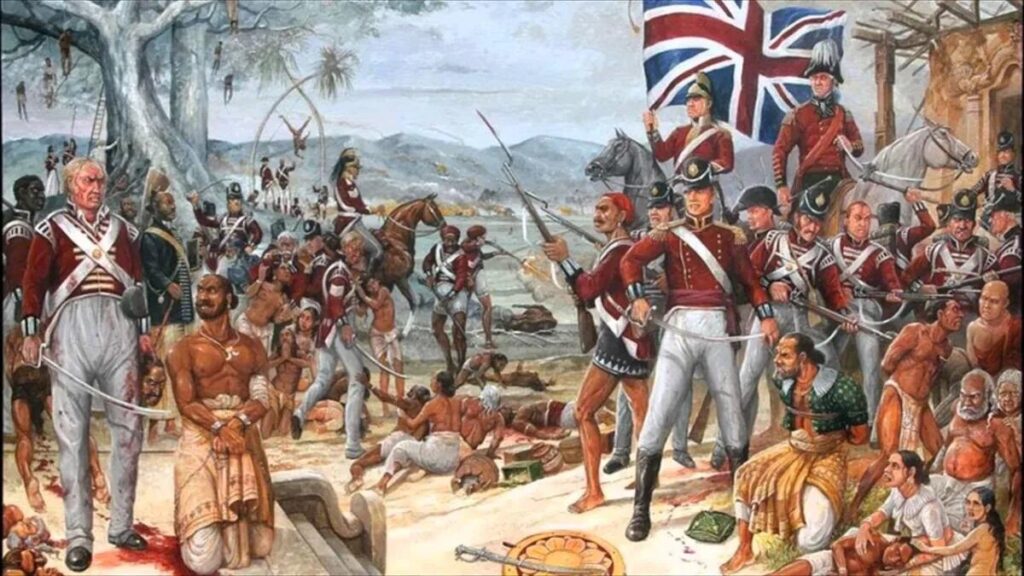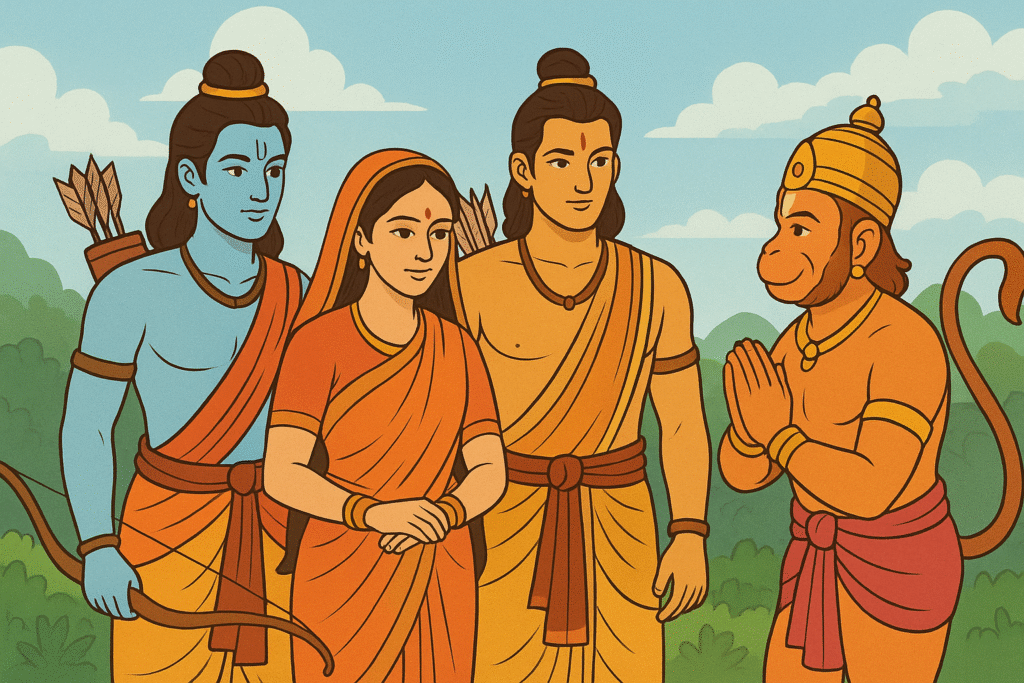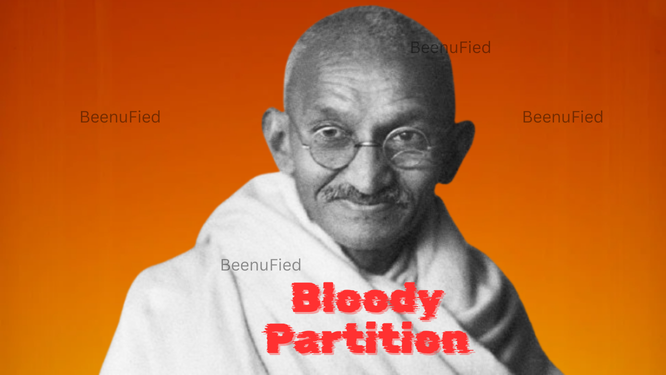
British, they did not come with army, horses, elephants, warriors, arrows, swords and yes, not even nuclear bomb threat. They came with documents for trade in India. Portuguese, Dutch, Danes were already trading. India was a land of spices, silk, and cotton – things Europeans craved.
In 1600, Queen Elizabeth I granted a charter to, a European Company, the East India Company (EIC). Mughal Emperor Jahangir officially welcomed the English East India Company in India, granting them a royal charter (Farman) to establish trading posts and factories, first in Surat in 1613 and then across the Mughal Empire. At this point, they had no political ambitions. They sought only to make profits, and for decades, they remained dependent on the goodwill of Indian rulers.
Later, British and French companies were drawn into politics due to trade interests. Three carnatic wars were fought between them and finally British were able to establish their superiority.
The Decline of the Mughals: A Golden Opportunity
Ok, so let’s start counting the culprits one by one.
One of the biggest reasons for the colony was the Mughal Rule. Aurangzeb’s religious bigotary and continous war in deccan, weak mughal succesors who were addicted to apeasement, wine and women, corrupt mughal nobility and weak mughal military, all were no less than a famine to India which gave way to Villian-British disguised as “Rennaisance-Hero”.
The second reason was the regional kingdoms, which never united, not during muslim invasions also. All the Hindus knew the concept of Ghazwa-e-Hind and Kafirs, but all they cared about was their thrones. And those who wanted to unite against all the “Adharm”, never got any support. The British didn’t conquer India alone; they had help from Indians themselves. Many Indian rulers allied with the British to defeat rivals. Lack of unity among Indian states made conquest easier. While the British were united, disciplined, and technologically advanced, Indian rulers were often divided by jealousies, ego and regional interests.
This fragmentation created political chaos, and the British sensed an opportunity. The British East India Company, though a private trading company, started to play politics. They realized that controlling rulers was more profitable than just trade.
The Turning Point: The Battle of Plassey (1757)
The real conquest began in 1757, with the Battle of Plassey. Siraj-ud-Daulah, the Nawab of Bengal, opposed British fortifications in Calcutta. The British, led by Robert Clive, conspired with the Nawab’s own commanders, like Mir Jafar, to betray him. The British army, though small, won easily because of this betrayal. It gave the British political power for the first time. They replaced Siraj with Mir Jafar as Nawab – a puppet under their control. From this point, the British were no longer just traders.
The Battle of Buxar (1764): Securing Authority
After Plassey, in 1764, they fought the Battle of Buxar against the combined forces of: The Nawab of Bengal (Mir Qasim), The Nawab of Awadh, and The Mughal Emperor Shah Alam II. The British defeated them all. This time British not showed might but the power. In 1765, the Mughal Emperor granted the Diwani(right to collect revenue) of Bengal, Bihar and Orissa to the Company. This was a game-changer because now the British controlled tax revenue and not just trade.
Expansion through Diplomacy and Wars
They used many strategies to conquer land inch by inch:
Policy of relative isolationism – Company kept it away from matter of states
Struggle for equality – With Capture of Arcot, Battle of Buxar and Plassey
Policy of Ring Fence – To create buffer zones to protect Company’s frontiers
Subsidiary Alliance – To keep British troops for “protection” (at state’s expense) and
stop dealing with other European powers. If they failed to pay, the British would annex their territory.
The Doctrine of Lapse – This policy said that if a ruler died without a biological male heir, his kingdom would lapse to the British.
Direct Wars- Anglo-Mysore Wars, Anglo-Maratha Wars, Anglo-Sikh Wars
Conclusion
While Military Supremacy, Naval Power, Advance technology and Strong Leadership, all were big reasons. But, were they enough?
READ MORE:- Do we really don’t need RESERVATION?


❤️
insightful
thanks
Pingback: Reservation: Do we really not need it?
Pingback: When It Rained Meat: Kentucky Meat Shower - BeenuFied
Pingback: Ramayan – Myth or Reality? : Ramayan Proof. - BeenuFied
Pingback: Partition of India: Who Was Really Responsible? - BeenuFied